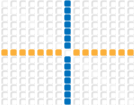Kapu, nap, asszonyok (Magyar)
A festő egymásra festette képeit, mert nem volt pénze vászonra. Láttam, ahogy képre képet festett, s az utolsó képen, a láthatón átvilágított az első, a második, a harmadik... S az utolsó kép, a látható is ilyen volt már: a napfénybe bugyolált asszony méhén átsugárzott a virág. A narancsszínű és piros napok átütöttek a vásznon, és véglegesen körülzárták az asszonyok arcát. A fehér kendők is napokká váltak s a feketék is. A kapuk mozdulatlanul lebegtek, mint az emlékek. És a napbazárt arcú asszonyok keze egymásraejtve, egymáson átnyúlva, egymásbatűnve egy leheletnyi végtelenbe veszett. | Feltöltő | CZIRE Szabolcs |
| Kiadó | Kriterion Könyvkiadó Kolozsvár |
| Az idézet forrása | Az idő körei |
| Könyvoldal (tól–ig) | 491 |
| Megjelenés ideje | 2010 |
 |
|
Gate, sun, women (Angol)
The painter painted his paintings on top of one another, because he had no money for canvas. I saw how he layed one scene over the other, and on the last picture, on the visible one, shone through the first, the second, the third… And the last painting, the visible one was just like that: a woman is wrapped in sun, and a flower shone trough her womb. The orange and red suns bled through the canvas, and enclosed the women’s face forever. The white scarfs and the black scarfs all became the sun. The gates levitated motionless, just like memories. And the hands of the sun-imprisoned women dropped on each other, reaching toward each other, faded into each other, lost into the dash of infinite. |




